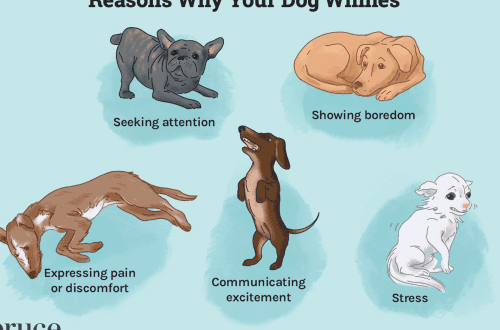
All about the hunting instinct in dogs
Are you wondering why your dog likes to chase squirrels, cats or rabbits around the house or in the park? If walking with a pet is chaotic due to a tendency to chase other animals, or if your cute puppy has ever terrified you by jumping up and holding a rabbit in his mouth, he may have a strong hunting instinct. Here’s everything you need to know about hunting instinct in dogs and what you can do to control it.
Contents
Why is my dog chasing squirrels?
 Since dogs evolved as predators, just like wolves, most of them have retained the ability and desire to hunt. Due to breeding, in different breeds this desire for hunting manifests itself in different ways.
Since dogs evolved as predators, just like wolves, most of them have retained the ability and desire to hunt. Due to breeding, in different breeds this desire for hunting manifests itself in different ways.
Dogster magazine explains why a dog chases a cat. The hunting instinct includes five distinct behaviors: searching, stalking, chasing, biting as a grab, and biting to kill. Among animals with a strong hunting instinct, these forms of behavior manifest themselves in different ways, depending on the breed. Herding breeds, for example, have a strong chasing instinct, while hounds love to stalk and lure prey out.
Terriers, originally bred to hunt and kill rodents and other small game, still have a strong instinct. Of course, not all dogs have a strong hunting instinct, not every one of them runs after a cat, and many are limited to displaying some weak leftover predator instincts in a game, such as chasing a ball or gutting a toy.
Hunting instinct or aggression?
While a strong prey instinct can sometimes look like aggression, especially to prey dogs, there is a key difference between the two that is important in understanding your pet’s behavior. The animal’s aggression is triggered by strong emotions such as fear, states Positively, while the hunting instinct is involuntary.
Another key difference is that aggressive dogs tend to increase the distance between themselves and the object of their aggression. While under the influence of their hunting instinct, dogs tend to get closer to the target. This is good news for pet owners with a strong hunting instinct, as it means there is no emotional component to overcome, and the hunting instinct is usually easier to manage than emotion-based aggression.
Can a strong hunting instinct lead to behavior problems?
The strong hunting instinct in dogs can be a problem if your pet is chasing anything that moves, like running after cars. It can be funny when you’re playing fetch, but when you go out for a walk and your puppy is chasing every squirrel, rabbit or cat he sees out of the corner of his eye, it doesn’t seem so funny anymore.
As the Dogtime website says, if not properly restrained, dogs with a strong hunting instinct can engage in dangerous behavior such as chasing cars or attacking venomous snakes, and your dog may become so focused on his prey that he will ignore your commands or refuse to approach when called. Unfortunately, small pets such as rodents, birds, cats, and even small dogs can be dangerous to be around a larger dog with a strong hunting instinct.
Can the hunting instinct in dogs serve a good purpose?
 However, the hunting instinct also has positive aspects. The Bark magazine states that the term “hunt instinct” primarily refers to the level of arousal or motivation of a dog to perform tasks involving hunting or chasing an object. This instinct can be extremely useful in Agility training or for military and police canine services.
However, the hunting instinct also has positive aspects. The Bark magazine states that the term “hunt instinct” primarily refers to the level of arousal or motivation of a dog to perform tasks involving hunting or chasing an object. This instinct can be extremely useful in Agility training or for military and police canine services.
This is also the reason why herding dogs are good herding dogs and hunting dogs are good hunting companions. At home, a dog’s hunting instinct can make it more playful and active, and can also help keep unwanted rodent and pest growth in check, depending on how it manifests itself.
What breeds have a strong hunting instinct?
In general, dogs bred for hunting or herding have the strongest hunting instincts. These include herding dog breeds such as Australian Shepherds and Border Collies; terriers such as the Airedale Terrier and Bull Terrier; hounds such as beagles and greyhounds; and hunting dog breeds, which include retrievers, spaniels, and pointers.
Some service group breeds, such as Siberian Huskies or Boxers, while not specifically bred for hunting or herding, nevertheless have a strong hunting instinct and you may need to keep a close eye on smaller pets.
Controlling the dog’s hunting instinct
Although some aspects of the hunting instinct in dogs range from mildly annoying to close to uncontrollable, in most cases a strong hunting instinct is relatively harmless. In such cases, engaging the dog in a game that involves chasing, catching and delivering prey, such as playing fetch with her favorite tennis ball, can provide a healthy outlet for her instincts.
Playing dynamic sports is another positive and fun outlet for your pup’s hunting instinct. However, if your dog’s hunting instinct prompts him to engage in behavior that endangers either his own safety or the safety of other animals, you may need to take extra steps to protect him and your environment. In addition to making sure your dog is already exercising and playing, dog training site Positively recommends the following:
- If possible, keep your dog in a fenced area of your yard. Or never let her run outside without a leash.
- Always use a leash when walking your pet in public.
- Allow your dog to go off-leash only in places where there are no dogs, cats or children, and only after he learns to come whenever you call him.
- Never allow your dog with a strong hunting instinct to interact with children or other dogs and pets without close supervision. If you have children or other dogs visiting you, you may need to lock the hunter pet in another room or keep it on a leash even in the house.
- Make sure your dog is vaccinated against rabies on time and that you have documentation that it has been vaccinated. If she is bitten by an animal that has become an object of hunting, then at least you do not have to worry about this.
While we often like to think of our dogs as four-legged children, the fact remains that they have animal instincts that can make them unpredictable. While there are many positives to a dog’s hunting instinct, you should learn to control your beloved dog as early as possible for their happiness and safety.





